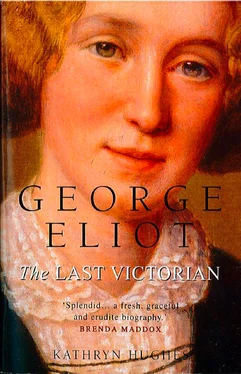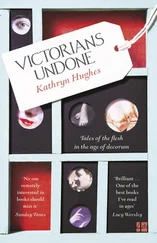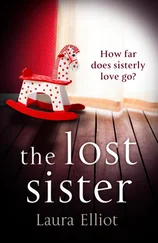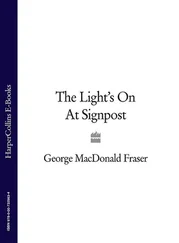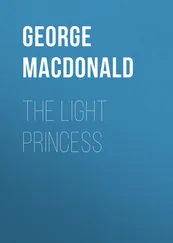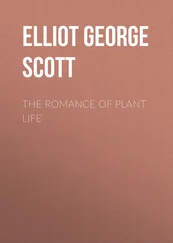1 ...8 9 10 12 13 14 ...35 Mary Anne’s surviving exercise book, too, reveals a deep interest in the whole drama of rejection. In her neat hand she copied out a trashy poem called ‘The Forsaken’ in which a young woman is jilted by a casual, arrogant man. Melodramatic though this might have been, it explores Mary Anne’s experience of her brother’s early coldness. The man in the poem behaves much as Isaac had done – leaving his sweetheart – sister bereft, while he sets out to explore a wider world, returning in this case not with a pony but with another woman. By way of a fantasy revenge, one of the last poems Mary Anne copied out in her notebook is ‘To a Sister’ in which a far-away brother begs his sister to remember him. 17 These verses and the trauma behind her choice of them laid the basis for Mary Anne’s pessimistic expectations about adult sexuality: women are doomed to love men who will not love them back. The future she imagined for herself was the one which came to pass. Until the age of thirty-four she was to endure one romantic rejection after another.
In 1835 Christiana Evans fell ill with breast cancer, and at Christmas Mary Anne was called home from school to nurse her. All the French prizes and piano performances in the world could not rescue the cleverest girl in the school from the expectations which the nineteenth-century family placed on its unmarried daughters. Any hopes Mary Anne might have harboured about moving on from the Franklins to an even more prestigious school, perhaps on the Continent, were dashed by the summons home to Griff.
Mary Anne’s entire education had been shaped by the demands of her mother’s health. At five she had been sent away because Christiana was too frail to manage her and at sixteen she was being called back because she was dying. Characteristically, any grievance Mary Anne felt was kept well buried. The one surviving letter of this time, written to Maria Lewis, uses the conventional pieties of the sickroom, ‘We dare not hope that there will be a permanent improvement.’ 18 There wasn’t. In the early hours of 3 February 1836 Christiana Evans died.
In a letter to his employer a few weeks later Robert Evans appeared to accept the situation stoically: ‘I have gone through a great deal of pain and Greif, but it is the work of God therefore I submit to it chearfully as far as Human Nature will permit .’ 19 In fact, he was far from resigned. When it became apparent in late December that Christiana was about to die, Evans had fallen violently and suddenly ill with a kidney complaint. The man who had always seemed as solid as an oak crumpled at the prospect of losing a wife for the second time. For a while it looked as if he too might die. But tender nursing and ferocious bleeding with leeches had their effect, and by mid-January he was shakily mobile. For a difficult few weeks it had seemed as if the Evans family – always a more fragile structure than it appeared – might collapse completely.
For the first time, almost, since Mary Anne’s birth the three children of Robert Evans’s second marriage were living under one roof. Chrissey was the housekeeper, Isaac the apprentice and Mary Anne her father’s surrogate wife. It was she who accompanied the old man on shopping trips to Coventry, mended his clothes and read from Walter Scott, the author whom they both loved. There is no evidence that the placid Chrissey resented her younger sister’s place in their father’s affections. Always her mother’s favourite daughter, the elder girl was released by Mrs Evans’s death into forming an attachment outside the family. A little over a year later she was married and her housekeeping duties devolved on Mary Anne.
With Isaac, the situation was not so easy. This could have been a time of reconciliation, with brother and sister moving beyond their childhood estrangement to build a new, adult relationship. But a single surviving anecdote which Cross tells from their intervening boarding-school years suggests that the tensions between them were as alive as ever. ‘On coming home for their holidays the sister and brother began … the habit of acting charades together before the Griff household and the aunts, who were greatly impressed with the cleverness of the performance; and the girl was now recognised in the family circle as no ordinary child.’ 20 No teenage boy enjoys being outshone by his younger sister, especially in front of those family members who had previously placed him first. Between the lines of an anecdote anxiously repeated by John Cross to emphasise the harmony between Isaac and Mary Anne, there lurked a rivalry which was to reemerge now that the two were once more under the same roof.
On the surface theirs was an argument about religion. Isaac was a High Anglican, at the very opposite end of the spectrum from Mary Anne. At its most intellectually sophisticated, the Anglo-Catholic movement was rigorous and ascetic, favouring a return to the liturgy and monastic practices of the pre-Reform church. But Isaac had imbibed, probably from the tutor in Birmingham where he had finished his education, a more comfortable version, which celebrated the pleasures of the material world. While Mary Anne’s transformation from village girl to young lady had been modelled on Evangelical ideals of genteel behaviour, Isaac’s parallel metamorphosis into a gentleman – and that, indeed, is how he described himself in 1844 when he acted as executor to Aunt Evarard’s will – had been along decidedly High Church lines. His was a faith which allowed a man to hunt, drink and dine, before absolving himself from sin through the sacrament. It would be hard to imagine a greater contrast with Mary Anne’s conscience-scourging, Bible-reading puritanism.
Brother and sister were on a collision course and the crash came in August 1838. They spent a few days together in London, during which Mary Anne was picky about everything. The choir at St Paul’s was frivolous and silly. Going to the theatre was sinful and she preferred to spend the evening reading. The only time she cheered up was on a visit to Greenwich Hospital. Finally, brother and sister went to a bookshop where he bought a couple of hunting sketches, while she pounced triumphantly on a copy of Josephus’s History of the Jews . 21
Here was a return to the power struggle of a decade earlier. Isaac’s rejection of his little sister in favour of a pony had been the catalyst for her plunge into books and religion. Now she was using the intellectual muscle developed as a result to try and regain control of him. No longer sufficiently undefended to ask openly for love, she insisted that he bend down and do her will instead. The fact that he did not, that he constantly eluded her with his sociability and worldliness, only made her angrier. Her response was to become even more censorious, sniping at what she admitted later were his perfectly ‘lawful amusements’ 22 and adopting a superior, critical tone whenever talking about him. ‘Isaac is determinately busy, and altogether improving,’ she wrote smugly to Maria Lewis on 13 March 1840, as if discussing an annoying child. 23
There had been a brief rapprochement fifteen months before the trip to London when, on 30 May 1837, Chrissey married Edward Clarke at Chilvers Coton. On that occasion brother and sister broke down and had ‘a good cry’ at the realisation that life at Griff was moving into a new and unknown phase. 24 It was now that Mary Ann – newly elevated to ‘Miss Evans’ and minus the final ‘e’ of her Christian name – became the official housekeeper. Quite possibly her father offered to hire someone to do the job, leaving her free to study full-time at home. That she did not accept this tempting proposal suggests that she had a great deal at stake in becoming the mistress of Griff. John Cross, always anxious to absolve his late wife of anything that might hint at oddness or masculinity, emphasised the pleasure she took in ‘the soothing, strengthening, sacred influences of the home life, the home loves, the home duties’. 25
Читать дальше
